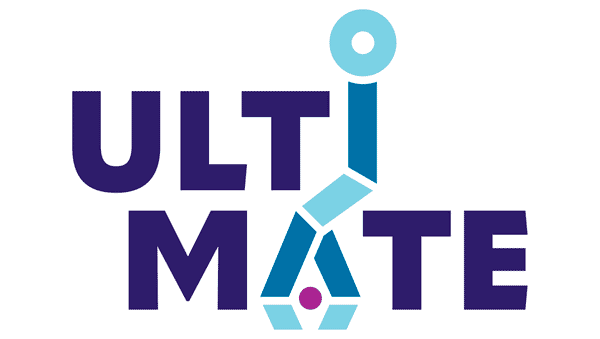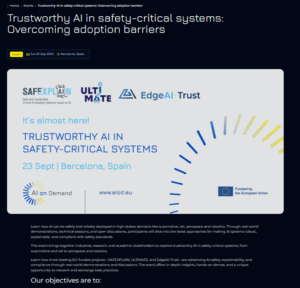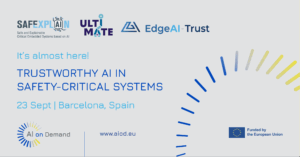
Connecting the dots in trustworthy Artificial Intelligence: From AI principles, ethics, and key requirements to responsible AI systems and regulation
Natalia Díaz Rodríguez has a double PhD degree (2015) from University of Granada (Spain) and Åbo Akademi University (Finland). She is currently Marie Curie postdoctoral researcher and docent at the DaSCI Andalusian Research Institute in data science and computational intelligence (DaSCI.es) at the Dept. of Computer Science and Artificial Intelligence. Earlier, she worked in Silicon Valley, CERN, Philips Research, University of California Santa Cruz and with FDL Programme with NASA. She was also Assistant Prof. of Artificial Intelligence at the Autonomous Systems and Robotics Lab (U2IS) at ENSTA, Institut Polytechnique Paris, INRIA Flowers team on developmental robotics during 4 years, and worked on open-ended learning and continual/lifelong learning for applications in computer vision and robotics. Her current research interests include deep learning, explainable Artificial Intelligence (XAI), Responsible, Trustworthy AI and AI for social good. Her background is on knowledge engineering and is interested in neural-symbolic approaches to practical applications of responsible and ethical AI.
Trustworthy Artificial Intelligence (AI) is based on seven technical requirements sustained over three main pillars that should be met throughout the system’s entire life cycle: it should be (1) lawful, (2) ethical, and (3) robust, both from a technical and a social perspective. However, attaining truly trustworthy AI concerns a wider vision that comprises the trustworthiness of all processes and actors that are part of the system’s life cycle, and considers previous aspects from different lenses. A more holistic vision contemplates four essential axes: the global principles for ethical use and development of AI-based systems, a philosophical take on AI ethics, a risk-based approach to AI regulation, and the mentioned pillars and requirements. The seven requirements (human agency and oversight; robustness and safety; privacy and data governance; transparency; diversity, non-discrimination and fairness; societal and environmental wellbeing; and accountability) are analyzed from a triple perspective: What each requirement for trustworthy AI is, Why it is needed, and How each requirement can be implemented in practice. On the other hand, a practical approach to implement trustworthy AI systems allows defining the concept of responsibility of AI-based systems facing the law, through a given auditing process. Therefore, a responsible AI system is the resulting notion we introduce in this work, and a concept of utmost necessity that can be realized through auditing processes, subject to the challenges posed by the use of regulatory sandboxes. Our multidisciplinary vision of trustworthy AI culminates in a debate on the diverging views published lately about the future of AI. Our reflections in this matter conclude that regulation is a key for reaching a consensus among these views, and that trustworthy and responsible AI systems will be crucial for the present and future of our society.




